Institutional Ineffability
The Vulnerability of Stability in an Age of Artificial Intelligence
5/22/202415 min read
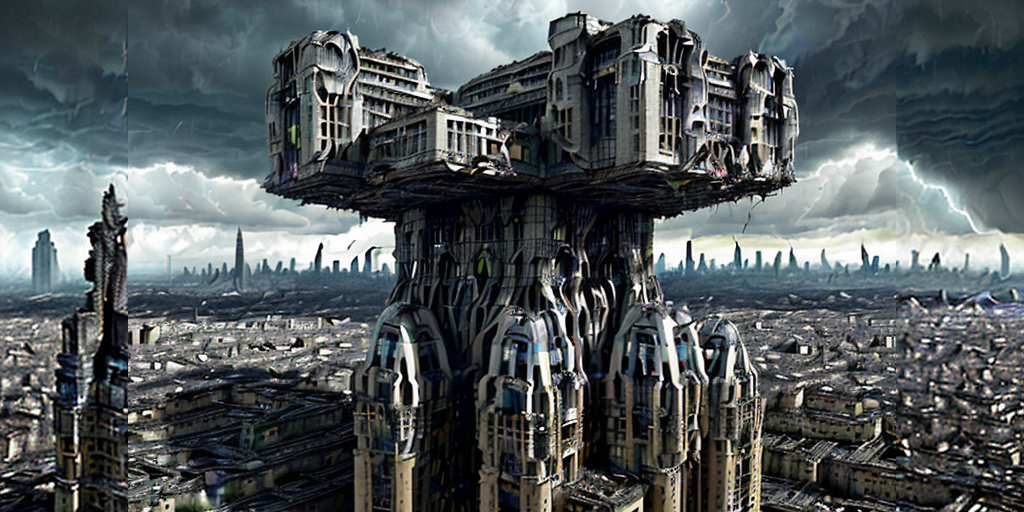

TL;DR:
The rigid, bureaucratic institutions that have underpinned modern civilisation are facing an existential threat from the rapid advancement of artificial intelligence, particularly transformer-based language models.
The democratisation of intelligence enabled by these AI systems will disrupt and unsettle our most fundamental assumptions about work, education, governance, and the very nature of what it means to be human.
To navigate this transition successfully, individuals must adopt a proactive, resilient mindset that emphasises adaptability, technological savvy, and critical thinking.
Society must work together to reimagine and rebuild institutions in ways that can harness the power of AI for the common good, while prioritising the ethical development and equitable distribution of these technologies.
The path forward is uncharted and the risks are immense, but active participation in shaping the future is imperative to unlocking a future of unprecedented prosperity, creativity, and human flourishing in the face of the AI revolution. Nobody is coming to help. Its up to us.
Too little, too late.
The very thing that has made the UK create the modern world may also be the source of its downfall. Like it or not, the UK was instrumental in shaping the global order we know today - from the ubiquitous business suit to the spread of capitalism and common law. This was enabled by the effectiveness of British institutions, a bureaucracy built on competence that could implement ideas and culture at an unprecedented scale.
The purpose of these institutions - government, law, education, healthcare, and more - is to provide stability and predictability for the population. With this framework, we are able to plan our lives, make long-term investments, and develop a sense of hope for the future. We can get married, buy a home, and chart career paths with a reasonable degree of foresight. This institutional stability is what differentiates prosperous societies from the Hobbesian chaos of failed states like Somalia, where the lack of predictable structures makes any long-term planning impossible.
However, the very characteristics that have made these British-exported institutions so effective may now be their Achilles' heel. Artificial Intelligence is rapidly collapsing our ability to plan even a few years into the future. The pace of technological change is undermining the basic assumptions that these rigid institutions were built upon. Automation is disrupting traditional career paths, AI-powered education is challenging the credentialing model, and the shifting balance of power between citizens and the state is fracturing long-held social contracts.
In short, the stability that these institutions were designed to provide is now becoming a liability. Their inability to adapt quickly to AI-driven disruption threatens to expose deep cracks in the foundations of modern society. As the "horizon" of predictability shrinks, the risks of institutional failure and societal chaos loom large. The UK's role in providing order may ultimately be overshadowed by its inability to evolve those same structures to withstand the coming technological upheaval.
The Rise and Fall of the British Empire
At the height of its power in the late 19th/early 20th centuries, the British Empire was underpinned by a sprawling network of rigid, bureaucratic institutions. From the civil service to the military to the colonial administration, these systems were designed for stability, predictability, and the efficient extension of British influence around the globe.
However, this institutional inflexibility ultimately became a liability as the pace of technological change began to accelerate. The advent of technologies like the telegraph, steamships, and eventually aeroplanes eroded the Empire's ability to centrally control and coordinate its far-flung territories. Nationalist movements in the colonies were able to rapidly organise and challenge the Empire's authority in ways the cumbersome bureaucracy struggled to respond to.
Meanwhile, the British establishment remained wedded to outdated doctrines and power structures that failed to keep up with the geopolitical shifts triggered by these new technologies. Attempts at piecemeal reforms were often too little, too late, as the ground was rapidly shifting beneath the feet of the imperial institutions.
Ultimately, the British Empire's collapse was hastened by its inability to evolve its core institutions quickly enough to adapt to a world being reshaped by transformative technologies. The very stability and predictability that had once been the source of the Empire's strength became a fatal weakness as the "horizon" of control and influence rapidly contracted.
We are now at the beginning of a far worse analogue that could cause enormous disruption within the UK itself as institutions fail to accommodate changes that are unstoppable from in and outside of its borders.
STAGE 1 - ACCESS TO AWARENESS: The Democratisation of Knowledge - The Written Word
First, there was the printing press, which emerged in the 15th century. Prior to this innovation, knowledge and wisdom were tightly controlled by the clergy of the Roman Catholic Church. The printing press enabled the widespread dissemination of the Bible and fuelled a rise in literacy among the general population. This democratisation of the written word resulted in newfound freedom of interpretation, discussion, and debate - much to the chagrin of the Church, whose infallibility was now being openly questioned.
The chaos of the Protestant Reformation, with its warring factions and loss of lives, was an inevitable byproduct of this empowerment of the masses. But it also gave rise to transformative political movements, the inalienable rights of man, and the foundations of democracy itself. Science, economics, commerce, and culture all thrived as innovation and expertise flourished. Education was standardised and fed back into the culture in an endless cycle of betterment, as each generation built upon the knowledge of the last.
STAGE 2 - BUILDING OUT THE NERVOUS SYSTEM: Democratisation of Information - The Internet
Centuries later, in the latter half of the 20th century, the creation of the internet ushered in a new era of information democratisation. From its origins as a tool for academic research, the internet has evolved into a ubiquitous and integrated part of our daily lives across the globe. Handheld computers and high-speed connectivity have woven the internet into the very fabric of modern civilisation.
The internet has functioned as the central nervous system of a connected humanity, enabling unprecedented cooperation, innovation, and the blurring of geographical borders. Corporations have been built, discoveries made, and cultures intermingled thanks to this global digital network. However, the creative destruction wrought by the internet has also come with significant costs - increased divisiveness, social isolation, and the marginalisation of large swaths of the population.
This digital age, defined by technological prowess and expertise, has led many to believe that the current trajectory will continue indefinitely. But in reality, we have merely set the stage for an even more profound transformation - the establishment of artificial intelligence as the "cortex" built upon the internet's digital nervous system.
Stage 3 - CONSTRUCTING THE CORTEX: The Democratisation of Intelligence
In the coming years, we will witness the democratisation of a new form of power - intelligence itself. Much like access to water or electricity, intelligence will soon become a ubiquitous utility, available on demand to people at almost no cost. The value of human knowledge and expertise is rapidly collapsing as AI models exceed the cognitive capabilities of the vast majority of people.
This transformation is happening at a breathtaking, unprecedented pace. Already, advanced language models can outperform experts in tasks ranging from legal research to medical diagnosis. And the capabilities of these AI systems are advancing at an exponential rate, with each breakthrough catalysing even more rapid progress.
The consequences of this democratisation of intelligence will be the defining feature of our lives in the decades ahead. It marks a profound paradigm shift, after which nothing will ever be the same. The speed and scale of change will disrupt and unsettle our most fundamental assumptions about the world, each other, and the very nature of what it means to be human.
In many ways, this transition will involve ceding much of what we currently consider "intelligence" to the machines. The models will become the primary drivers of work, innovation, and governance, as their ability to process information, identify patterns, and generate insights far surpasses human cognitive capabilities. Our roles, our purpose, and the structure of our institutions will all be radically reshaped by this technological upheaval.
The pervasive, ubiquitous nature of this new form of artificial intelligence makes it difficult for many to fully comprehend. It is tempting to view it as simply another digital tool or application, akin to a more advanced version of Google search. But this would be a profound mistake. AI is not just another app - it is an alien intelligence, a thinking machine that can understand relationships and draw insights from data in ways that are fundamentally beyond human scale.
This is the profound transformation that lies ahead. The democratisation of intelligence will not be a linear progression, but a disruptive rupture that will challenge the very foundations of our civilisation. Navigating this transition will require a wholesale rethinking of our institutions, our social contracts, and our sense of individual and collective identity. The risks are immense, but so too are the potential rewards, if we can learn to harness this transformative power responsibly.
AI is not a "normal" technology. Prepare accordingly.
To fully grasp the threat that AI poses to traditional institutions, we must first understand the profound nature of this technological shift. Artificial intelligence is not just another software application or database system to be managed by the IT department. It represents a qualitative leap in the capabilities of machines, one that goes far beyond the limitations of previous computing technologies.
The key breakthrough that enabled this AI revolution was the development of transformer models, a type of neural network architecture that has dramatically advanced the field of natural language processing. Pioneered by researchers at Google and OpenAI in the mid-2010s, transformer models like BERT and GPT-3 demonstrated an unprecedented ability to understand and generate human language. Unlike traditional rule-based language processing systems, these AI models could learn patterns and context from vast troves of text data, allowing them to engage in remarkably fluent and coherent communication.
But the significance of transformer tech goes far beyond mere language skills. These models have proven to be remarkably flexible, able to be fine-tuned for a wide variety of tasks - from answering questions and summarising documents to writing code and generating images. In essence, transformer-based AI has become a general-purpose intelligence, a flexible cognitive capability that can be applied to an ever-expanding range of domains.
This is a profound shift from the narrow, specialised AIs of the past, which were limited to specific, well-defined tasks like playing chess or diagnosing medical conditions. Transformer models possess a form of fluid, adaptable intelligence that begins to approximate human-like cognition. And as these models grow in scale and capability, they are poised to become the most powerful lever of control and influence that humanity has ever wielded.
Unlike a traditional database or software system, which is constrained by the specific parameters it was designed for, AI models can learn and evolve in ways that make them inherently unpredictable. Their outputs are not simply the result of programmed instructions, but the product of complex, opaque neural networks that can discover novel solutions and patterns that even their creators did not anticipate.
This unpredictability is what makes AI such a profound threat to the rigid, bureaucratic institutions that have underpinned modern civilization. As these transformer-powered AI systems become embedded into the core functions of government, finance, healthcare, education, and beyond, they will begin to rapidly outpace the ability of traditional institutions and culture to maintain control and stability. The "horizon" of predictability that institutions have created is going to collapse, with seismic consequences. And it is going to happen within the next 3- 5 years.
Yet there is no plan.
There is no plan for what to do as jobs begin disappearing.
There is no plan for the economic impact of these job losses.
There is no plan for the education of our children being exposed as completely unfit for purpose.
There is no plan for the inevitable crisis that we are all facing.
All we have is a rearranging of the deckchairs on the Titanic by the institutions as a solution to the iceberg thbout to hit. An iceberg that might very well sink us.
The imperative to prepare for institutional failure in the face of AI disruption cannot be overstated.
We must recognize that the rigid, bureaucratic structures that have provided stability and predictability for centuries are now facing an existential threat. The exponential pace of AI development means that we have a rapidly shrinking window of opportunity to adapt and evolve our institutions before they are overwhelmed by the disruptive power of this technology.
To mitigate the risks of institutional fracturing, we must embrace a new paradigm of individual and collective resilience. This means developing a level of self-reliance and adaptability that can withstand the turbulence of the AI revolution. We must cultivate a mindset of continuous learning, recognizing that the skills and knowledge that have served us well in the past may quickly become obsolete in the face of AI-driven change.
One critical aspect of this resilience will be technological savvy, particularly in the realm of AI. As individuals, we must strive to understand and harness the power of AI tools in our personal and professional lives. This means developing a basic literacy in machine learning concepts, familiarizing ourselves with AI-powered productivity tools, and actively seeking out opportunities to leverage AI for creative problem-solving. By co-opting AI as an ally rather than a threat, we can position ourselves to thrive in a world where traditional institutions may falter.
But technological savvy alone will not be enough. We must also cultivate a capacity for independent thinking and critical analysis. In an age where AI can generate persuasive arguments and compelling narratives at scale, it will be more important than ever to question assumptions, seek out diverse perspectives, and arrive at our own well-reasoned conclusions. We must resist the temptation to outsource our thinking to machines, recognizing that human judgment and values will remain essential even as AI becomes increasingly sophisticated.
Ultimately, navigating the AI revolution will require a delicate balance between individual self-reliance and collective action. While we must each take responsibility for our own resilience and adaptability, we must also work together to reimagine and rebuild our institutions in ways that can harness the power of AI for the common good. This will require bold experimentation, a willingness to challenge entrenched interests, and a commitment to ensuring that the benefits of AI are distributed equitably across society.
The stakes could not be higher. If we fail to prepare for the institutional upheaval that AI will bring, we risk a future of chaos, inequality, and societal collapse. But if we can rise to the challenge, embracing a new paradigm of resilience and adaptability, we may yet chart a course towards a more prosperous, equitable, and fulfilling future for all. The choice is ours, but the time to act is now.
The road ahead is daunting, but it is also a crucible through which we must pass to forge a brighter future. Just as the Protestant Reformation's upheaval ultimately birthed democracy and the Enlightenment, the democratization of intelligence heralds the dawn of unprecedented human potential. Yet, this transformation will not come without a price. We will have to endure disruptions and discomfort, recognizing that the short-term chaos is the necessary fire through which we must walk to emerge stronger and more resilient.
We must accept that the old ways of doing things are crumbling. The bureaucratic rigidity that once provided stability is now a shackle that we must break. It is time to question entrenched assumptions, dismantle obsolete systems, and rebuild with a focus on inclusivity and adaptability. This is not an era for complacency or clinging to the past; it is a call to arms for bold, collective action.
Communities must band together, not merely to survive the immediate disruptions, but to thrive in the new world AI is bringing. This means investing in local networks, fostering mutual aid, and creating parallel institutions that can withstand the shocks of change. It means revolutionizing education to equip our children with the skills they need for an AI-driven world and advocating for policies that ensure AI's benefits are shared equitably.
The challenges are monumental, but so too are the opportunities. If we rise to meet them, we can build a world where human ingenuity and machine intelligence work in tandem, unlocking new realms of innovation, creativity, and human flourishing. This is our pivotal moment to rewrite the rules, to turn a crucial page in humanity's story. The journey will be tough, but the destination promises a testament to our resilience and ingenuity. Together, we can navigate this upheaval and emerge not just unscathed, but empowered, more united, and more capable than ever before. Now is the time to act, to adapt, and to seize the future that lies within our grasp.
STAGE 1: Now > 12 months - Prepare for the AI Revolution:
Develop AI Literacy
Familiarise yourself with basic machine learning concepts and terminology
> Explore AI-powered tools and platforms relevant to your field or interests
> Attend workshops, webinars, or online courses to deepen your understanding of AI
Cultivate Adaptability
Embrace a mindset of continuous learning and growth
> Be willing to pivot your skills and career path as AI disrupts traditional industries
> Develop a diverse set of transferable skills that can be applied across multiple domains
Emphasize Critical Thinking
Question assumptions and seek out diverse perspectives
> Develop your own well-reasoned opinions rather than relying solely on AI-generated insights
> Critically evaluate the outputs of AI systems, recognizing their potential biases and limitations
Build Personal Resilience
Cultivate strong mental and emotional health practices to weather the turbulence of change
> Develop a robust support network of family, friends, and colleagues
> Prioritise self-care and work-life balance to prevent burnout and maintain long-term resilience
Advocate for Responsible AI Development
Support policies and initiatives that prioritize the ethical development and deployment of AI
> Hold institutions and leaders accountable for ensuring that AI benefits society as a whole
> Engage in public discourse and decision-making processes around AI governance and regulation
Collaborate and Innovate
Seek out opportunities to collaborate with others on AI-related projects and initiatives
> Embrace a spirit of experimentation and innovation, recognising that the path forward is uncharted
> Share your knowledge and insights with others to collectively navigate the challenges ahead
Invest in Continuous Upskilling
Regularly assess your skills and identify areas for growth and development
> Pursue formal education, certifications, or training programs to stay current with AI advancements
> Prioritize learning opportunities that emphasize hands-on, practical applications of AI technologies
By adopting these recommendations, individuals can position themselves to not only survive but thrive in a world transformed by artificial intelligence. The key is to approach the AI revolution with a proactive, resilient mindset, recognizing that the path forward will require ongoing adaptation and growth. By cultivating a combination of technical savvy, critical thinking, and personal resilience, we can chart a course towards a future in which human ingenuity and machine intelligence work together for the betterment of all.
STAGE 2: Develop local, trusted networks of reliance and cooperation. The government isn't coming to help, it's up to us.
Build Local Networks
Forge strong connections with neighbours, community organisations, and local businesses
Establish mutual aid groups to share resources, skills, and support during times of crisis
Create community gardens, tool libraries, and skill-sharing initiatives to promote self-sufficiency
Develop Parallel Institutions
Create alternative educational programs, such as homeschooling networks or community-based learning centers.
Establish local currencies or barter systems to facilitate exchange and reduce dependence on centralised financial institutions
Form community-based healthcare cooperatives or wellness centers to provide affordable, accessible care
Promote Decentralised Decision-Making
Advocate for local control over key resources, such as water, energy, and food production
Encourage participatory budgeting and community-driven decision-making processes
Support the development of decentralized technologies, such as blockchain, that can enable greater individual autonomy and privacy
Cultivate Personal Resilience
Develop practical skills, such as first aid, food preservation, and basic repairs
Build a personal emergency fund and stockpile essential supplies to weather short-term disruptions
Prioritise physical and mental health through regular exercise, mindfulness practices, and stress management techniques
Foster Local Entrepreneurship
Support small businesses and locally-owned enterprises that keep wealth circulating within the community
Encourage the development of cottage industries and home-based businesses that can provide alternative income streams
Invest in community-owned assets, such as real estate or renewable energy projects, to build long-term wealth and resilience
Engage in Civic Activism
Participate in local government meetings and decision-making processes to ensure community needs are met.
Advocate for practical policies that address immediate community concerns, such as improving local infrastructure, public safety, and access to essential services.
Run for local office or support candidates who prioritise decentralised, community-driven solutions.
Preserve and Share Knowledge
Encourage activities that strengthen community bonds, such as group projects, local events, and volunteer opportunities
Promote the development of personal qualities like courage, resilience, and empathy through community engagement and support networks.
Mentor younger generations to build meaningful relationships and ensure the transfer of valuable life skills and wisdom.








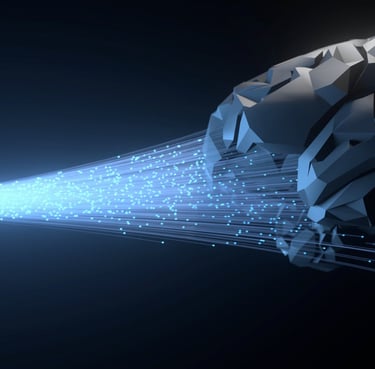

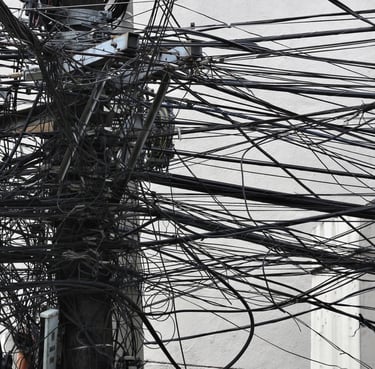

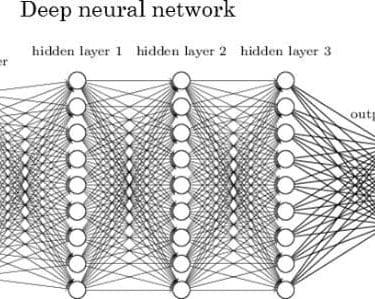





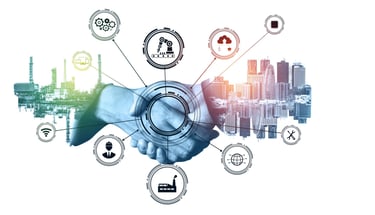
























By focusing on local resilience, decentralised decision-making, and community-driven solutions, individuals and communities can establish a greater sense of control and autonomy in the face of government failure. While these efforts may not entirely mitigate the risks associated with institutional collapse, they can provide a critical buffer against the most severe consequences and lay the foundation for a more resilient, equitable future. Ultimately, the path forward will require a collective commitment to building stronger, more self-reliant communities that can weather the storms ahead and bring about a healthier, better world that is able to navigate the exciting years ahead, far into the future.


Address
128 City Road
London
EC1V 2NX
Contacts
hello@adaptiveintelligence.tech